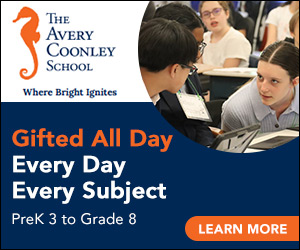Unpacking the Myths in Media
By Alia Pineda Medina
NAGC asked its 2024 Teachers Summit (held online February 13-14, 2024) speakers to share additional information about their presentations via the NAGC Blog. Alia Pineda Medina and copresenter Ty’Bresha Glass will be presenting on the topic of Myths & Media: Lessons to Learn (and Unlearn!), on February 14 at 12:00 p.m. ET.
Have you seen TV shows like Abbott Elementary recently? Read the beloved classic novel, Matilda by Roald Dahl? Revisited timeless cartoons like Danny Phantom? While all the above sound like a great way to spend your weekend, their underlying messages ultimately shape our perspectives and influence our collective consciousness.
Now you may think, “What kind of covert messages are embedded within a cartoon like Danny Phantom?” Though the show's premise was a crime-fighting half-ghost teen, we can’t ignore his sidekicks. Tucker Foley, Danny’s best friend, is an amazing tech whiz; but beyond his role, who does his character represent? He is the “nerd.” Some often conflate the terms nerdiness and giftedness, as they can seem synonymous with intelligence, but with that comes the barrage of stereotypes. The show plays into these stereotypes, such as the sum of Tucker's personality being his intelligence: an unfortunate myth within gifted education. Looking beyond Tucker's capabilities, you can see there is more to him than his gifts, he’s also a jokester. Decoding these hidden messages is one of the tools you will walk away with after our presentation, Myths & Media: Lessons to Learn (and Unlearn!), at NAGC’s 2024 Teachers Summit.
Many myths and misconceptions about gifted education and gifted students are still widely held by society, and media portrayals of gifted students and education are partially to blame. Media portrayals have fueled these myths and misconceptions through their depictions of gifted individuals, whether intentionally or unintentionally. What can be done to make ourselves as education professionals more aware, so we do not continue to perpetuate them?
The ability to detect these covert messages relies on prior knowledge. While you watch shows like The Big Bang Theory, you might get a couple of laughs from Sheldon Cooper's quirks, but you may also question why the show’s creators made this bright individual so socially awkward.
Beyond being equipped with the knowledge and skills needed to grapple with these myths and misconceptions within media, there is an opportunity for self-reflection. Reflexivity is crucial to the teaching practice, as it provides insight into our areas of growth and improvement. Generally, the longer we stay in our careers, the more opportunities we have to learn new information that provides invaluable insights into our prior experiences.
If you’re attending the Teachers Summit and plan to join our session, we encourage you to bring your experience, whether that is 1-3, 5-10, or 10+ years as an educator. Together, we will work through select media portrayals of these myths and misconceptions and tackle unconscious biases that may affect our perceptions of and interactions with gifted individuals. Before February 14, take a moment to think about the following questions. Consider why you hold these beliefs, and how you came to hold them.
- How might your perceptions of giftedness influence your interactions with gifted individuals?
- Example: Will you expect them to be self-sufficient?
- Do your perceptions influence the expectations you place on gifted individuals?
- Example: Do you expect them to be model students?
- When you think of a gifted individual, who do you picture?
- Example: Are you picturing students from a specific race? Gender? Sexual orientation? Socioeconomic background?
- What are your behavioral expectations of gifted individuals?
- Example: Are they rule followers or rule breakers?
- What area(s) do you consider individuals can be gifted in?
- Example: Math? Football? Art? Leadership?
If you are unable to attend this year’s Teacher Summit, you can still reflect on your perceptions of giftedness by jotting down some answers to the above questions. Additionally, if you have the time, I encourage you to reflect on the media you’ve been consuming and analyze it through a gifted educator lens—you might be surprised at what messages are being advertised.
Additional Resources on Myths About Gifted Students
- https://http://www.nagc.org/myths-about-gifted-students
- https://www.davidsongifted.org/gifted-blog/disproving-myths-about-gifted-students/
- https://educationaladvancement.org/blog-myths-gifted-kids/
Alia Pineda Medina is a 2nd year Gifted Education Ph.D. student at Purdue University. She is a licensed Childhood Education (1-6) teacher from NY and continues to teach in gifted enrichment programs where she works with PreK-12 students. Her research interests include perspectives on gifted education, twice-exceptionality, teacher preparation, and advocacy.


